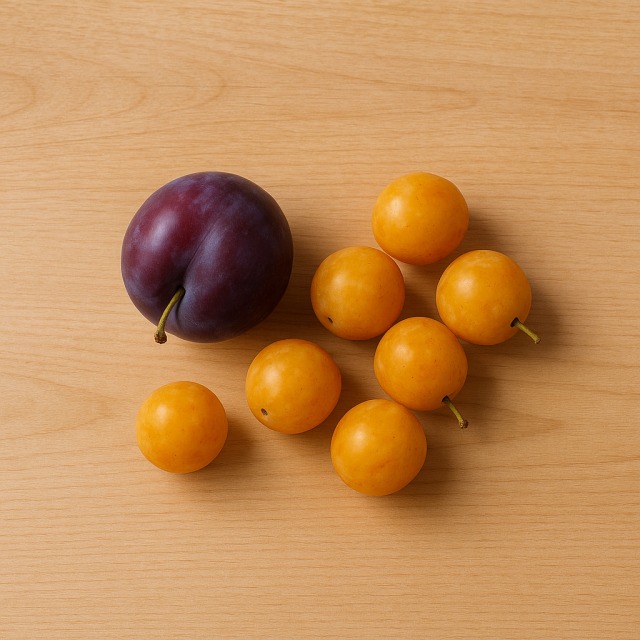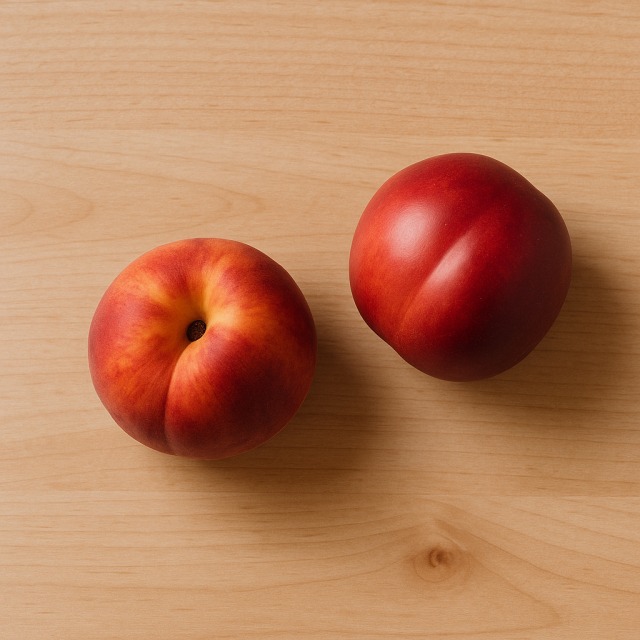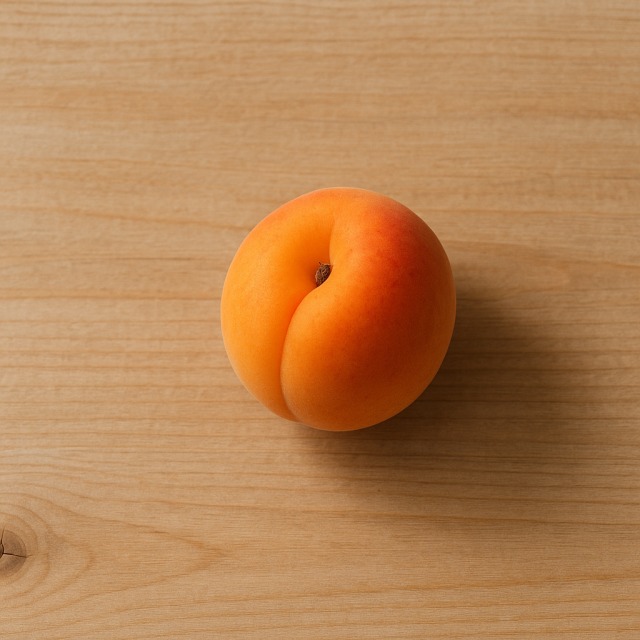Calorie Chart / Fruits / Prune
How Many Calories Are in Prune?
Calculation of the nutritional value & Recommended Dietary Intake of prune
For g and a calorie requirement of kcal
| Calories 26 kcal | Proteins 0.4 g | Lipids 0 g | Carbohydrates 6 g |
| 1% | 1% | 0% | 2% |
Health benefits of prune

Prune - 100g
Calories 172 kcal
Proteins 2.5 g
Lipids 0.2 g
Carbohydrates 40 g
Prunes are a moderate-to-high calorie dried fruit, yet these calories arrive with an impressive nutritional payload. Each portion delivers generous amounts of vitamin K, vitamin B6, provitamin A carotenoids, potassium, copper, and manganese. Their soluble and insoluble fibres, together with natural sorbitol, support regular bowel transit and may ease occasional constipation. The polyphenols in prunes—especially chlorogenic and neochlorogenic acids—are strong antioxidants that may protect cells from oxidative stress, making every bite of their calories count toward long-term wellness.
Research suggests that prunes can contribute to bone maintenance by limiting bone resorption, a benefit thought to be linked to both their potassium content and antioxidant profile. Athletes appreciate that the fruit's calories are released steadily thanks to its low-to-moderate glycaemic index, helping to avoid sudden energy crashes. Historically, prunes have been valued since the Middle Ages in South-West France, where drying plums guaranteed a portable source of calories during winter and long voyages. In short, although prunes are denser in calories than fresh fruit, they pack those calories with micronutrients and health assets rather than empty sugar alone.
Tips for incorporating prune into a balanced diet
To integrate prunes into a balanced diet without letting calories spiral, start your day with a warm porridge of oat flakes topped with diced prunes and a handful of toasted almonds. The fibres slow down the absorption of calories, keeping you satiated until lunch. For a protein-rich snack, blend chopped prunes into plain yogurt; the natural sweetness means you can skip added sugar and keep overall calories in check.
At lunch or dinner, try a Moroccan-inspired skillet: sear strips of chicken breast, add onions, cumin, and cinnamon, then simmer with prunes and a ladle of vegetable broth. The sweet-savory pairing adds depth while contributing only a measured amount of calories. If you prefer plant-based dishes, toss prunes through a warm quinoa salad with roasted carrots and herbs—the complex carbohydrates help distribute calories evenly throughout the meal.
Dessert lovers can fold chopped prunes into homemade rice pudding. Replace part of the sugar with the fruit's natural sweetness to reduce empty calories while enriching flavor and texture. Whichever recipe you pick, think of prunes as a flavor booster whose calories are balanced by fibre and micronutrients rather than a guilty extra.
Frequently Asked Questions
- How many calories are in prunes?
- There are 172 kcal per 100 g.
- Are prune calories mainly from sugar?
- Yes, most prune calories come from natural sugars (glucose and fructose), but their high fibre content slows absorption.
- Do prunes help with weight control despite their calories?
- The combination of fibre, sorbitol, and antioxidants can promote satiety and digestive comfort, so prunes may fit into a weight-loss plan as long as their calories are portioned correctly.
- How do prune calories compare with those of raisins or dates?
- Prune calories are similar to raisins and lower than dates; however, prunes provide more sorbitol and slightly more fibre per calorie.
- How many prunes should I eat daily to manage calories?
- For most adults, 3–5 prunes (roughly 100 kcal) offer nutritional benefits without adding excessive calories.
- Are prune calories suitable as pre-workout energy?
- Absolutely—about 30 minutes before exercise, 2–3 prunes supply quick, easily digestible calories plus potassium to support muscle function.
Similar foods
Information provided by Calorie Menu may contain inaccuracies or errors. It cannot, under any circumstances, substitute medical advice or medication.










